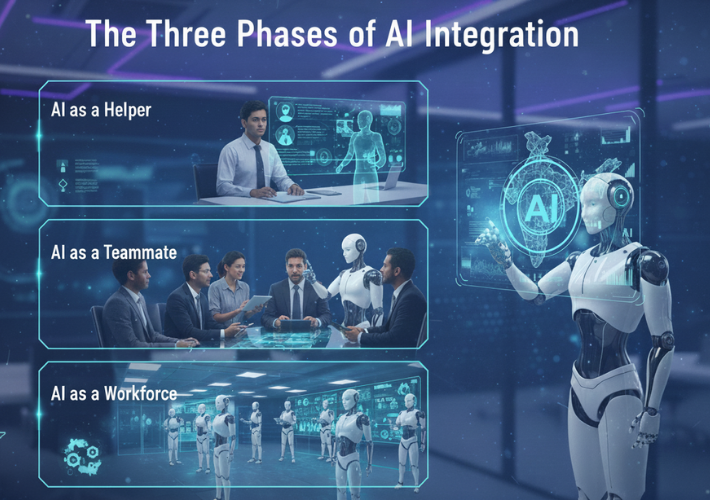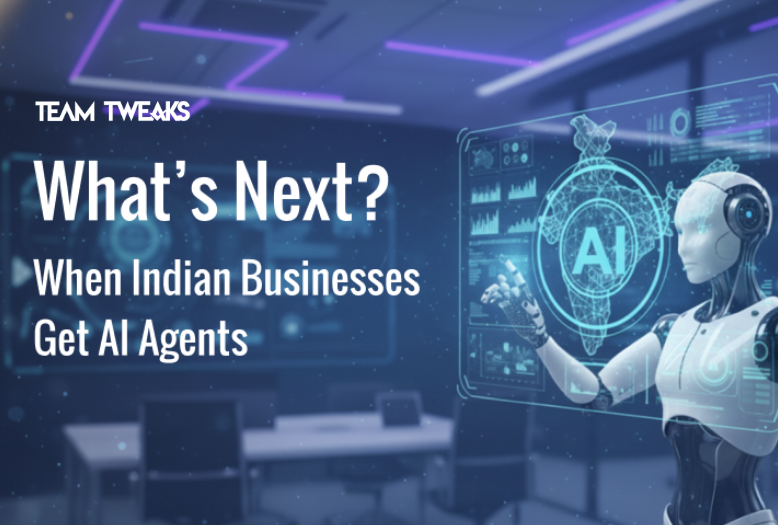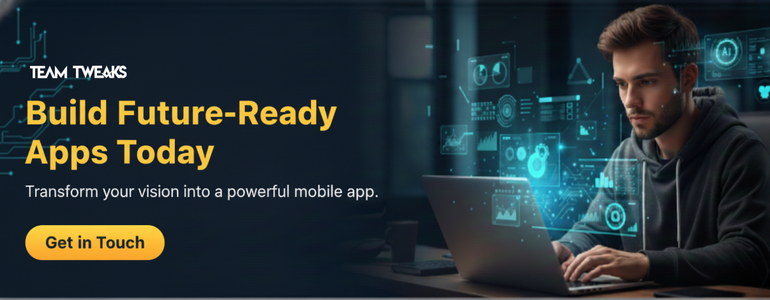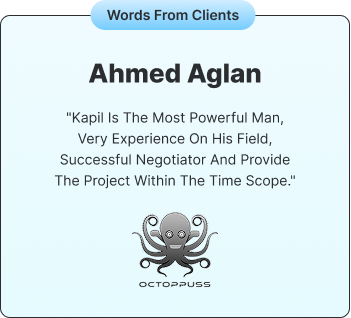In early 2025, one headline caught the attention of every business leader in India, 90% of Indian business leaders plan to deploy AI agents within the next 12 to 18 months.This finding from Microsoft’s Work Trend Index 2025 isn’t just another statistic. It marks a major turning point for the Indian workforce and the future of AI in business. For the first time, companies are not simply experimenting with artificial intelligence, they’re preparing to run their businesses with it.
From startups to large enterprises, AI agents are reshaping how Indian companies operate, make decisions, and serve customers. Let’s explore what this transformation means, what’s already happening, and what comes next.
Understanding the AI Agent Revolution
AI agents are not science fiction anymore. They’re intelligent digital workers designed to perform tasks that once required human effort from answering customer queries to analyzing data and generating reports.
If you receive WhatsApp delivery updates, appointment reminders, or banking alerts, you’re already interacting with an AI agent. These same systems are now entering the corporate world, managing complete workflows and business operations.
Microsoft’s research shows that 59% of Indian leaders have already deployed AI agents to handle full processes.
These include:
- Customer support and onboarding
- HR and recruitment screening
- Invoice management and analytics
- Scheduling, emails, and task tracking
AI agents are no longer simple chatbots, they’re evolving into digital teammates.
India’s Head Start in the Global AI Race
India stands at a unique advantage in this transformation.
Out of 31 countries surveyed by Microsoft, India ranked highest in AI optimism and readiness. Nearly 90% of business leaders believe this is the time to redesign work, not by adding more people, but by adding more intelligence.
Our tech-driven population, rapid digital adoption, and familiarity with automation tools make us natural early adopters of AI. The country that once became a global outsourcing powerhouse is now becoming a global AI workforce hub.
India’s culture of “jugaad” – finding innovative solutions with limited resources aligns perfectly with the promise of AI agents, doing more with less.
From Fear to Function – How AI Changes Work
There’s widespread discussion about AI replacing human jobs. But in India, the story is more about reshaping roles than removing them.
Microsoft’s study reveals a key tension:
Half of business leaders say productivity must improve, while employees say they’re already stretched thin.
AI agents are emerging as the bridge between both.
By automating repetitive and time consuming tasks, AI allows teams to focus on strategy, creativity, and human interaction.
For instance:
- A marketing executive spends less time drafting posts and more time designing campaigns.
- An HR team reviews AI-screened candidates instead of reading hundreds of resumes.
- A sales manager analyzes AI-generated reports to plan smarter outreach.
AI isn’t taking jobs, it’s taking over the boring parts of jobs. And that’s exactly what employees have wanted for years.
The Rise of New Job Roles – Future of AI in Business
As AI agents take center stage, new human roles are emerging. Titles like AI Workflow Designer, Agent Supervisor, and Prompt Engineer are becoming common in forward-thinking companies.
In fact, over 90% of Indian businesses are expected to create positions focused on managing or training AI systems. Employees are learning to give instructions to AI, review its output, and refine its accuracy, a skill that will soon be as valuable as computer literacy was two decades ago.
The future workplace won’t just include humans and machines, it will feature humans managing digital coworkers.
The Three Phases of AI Integration – Future of AI in Business

Microsoft describes the evolution of AI in business in three clear stages:
- AI as a Helper: AI supports individuals by automating small, repetitive tasks.
- Artificial intelligence AI as a Teammate: Humans collaborate with AI on projects, writing, designing, or coding together.
- AI as a Workforce: Humans supervise AI agents, focusing on leadership, innovation, and growth.
Interestingly, many Indian organizations are skipping straight to phase three. They’re already letting AI handle complex workflows while humans move into supervisory roles.
For example:
- AI generates marketing reports, while managers focus on campaign direction.
- Artificial intelligence AI screens and filters candidates, while HR professionals handle interviews.
- AI manages daily operations, while leaders focus on expansion and innovation.
This is not the distant future, it’s today’s reality.
Training People to Lead AI Agents – Future of AI in Business
Technology is not the toughest challenge in this revolution, people are. Over 51% of Indian leaders say their biggest focus for the next year is training employees to work with AI agents.
This doesn’t mean everyone must learn to code.
Instead, employees must learn to:
- Communicate effectively with AI
- Delegate and review AI outputs
- Identify when automation should or shouldn’t be used
- Combine human judgment with digital precision
The ability to manage AI will soon define great leadership. Tomorrow’s managers won’t just oversee human teams, they’ll also guide AI systems.
AI Agents Amplify Skills, Not Replace Them
AI is a skill amplifier, not a shortcut.
1. A skilled writer can use AI to generate content ideas faster.
2. A developer can use AI to code efficiently.
3. A designer can use AI to visualize creative concepts instantly.
But without foundational expertise, AI remains limited. It can’t replace intuition, taste, or judgment, it enhances them. In short, AI makes great professionals even greater, but it doesn’t make beginners experts overnight.
Businesses that understand this will scale faster and smarter than those still trying to “hire for everything.”
Real-World Examples of AI in Indian Businesses
AI agents are already transforming major sectors across India.
- Banking: Banks like HDFC, Axis, and ICICI use AI agents for customer support, KYC verification, and loan queries, saving thousands of hours every month.
- Retail: E-commerce platforms use AI for order tracking, complaint management, and product recommendations, improving customer experience.
- Healthcare: Healthcare employs AI agents to buy telemedicine, appointment booking, patient communication, and follow-ups, helping medical staff focus on treatment instead of administration.
- Education: Ed-tech companies use AI tutors to guide students, assess assignments, and provide personalized feedback.
- Logistics: Logistics companies use AI to plan routes, track shipments, and send automated updates to customers.
Everywhere you look, AI is quietly taking care of what used to take human teams days to complete.
The Human Touch Still Matters
Despite all the excitement, one truth remains, AI cannot replace human empathy.
Machines can analyze data but can’t feel emotion. They can respond instantly, but they don’t understand context or compassion.Businesses that thrive will be those that combine AI efficiency with human warmth.
A chatbot can answer a customer’s question, but only a human can handle a complaint with empathy. AI can analyze data, but humans must interpret what that data means. The key to success lies in finding the right balance between automation and authenticity.
Challenges on the Road Ahead
As India accelerates toward AI adoption, a few challenges need attention:
- Data Privacy – Protecting customer and business data must remain a top priority.
- Bias and Accuracy – Ensuring AI decisions remain fair and transparent.
- Employee Readiness – Bridging the skill gap through proper training.
- System Integration – Ensuring new AI agents work smoothly with existing tools.
- Ethical Use – Setting clear boundaries for where AI should and shouldn’t intervene.
These challenges are real but solvable. With proper governance, India can build an AI ecosystem that’s both responsible and revolutionary.
How Indian Companies Can Get Started
For business owners wondering how to join the AI wave, here’s a simple roadmap:
- Start with one use case: Pick a repetitive task and automate it like report generation or email replies.
- Educate your team: Run short AI awareness sessions or workshops. Show employees how AI helps them, not replaces them.
- Choose secure platforms: Use trusted AI systems with proper compliance and data protection.
- Measure results: Track how much time and cost AI saves each month. Use data to guide expansion.
- Encourage experimentation: Let teams play with AI tools and share ideas for improvement.
The Future of Indian Work – Future of AI in Business
By 2026, most Indian businesses will look very different. Employees will collaborate with AI agents daily. Reports, schedules, and customer responses will be automated. Meetings will be shorter, decisions will be faster, and productivity will be higher.
The biggest change? Work will feel more human because people will finally have time to focus on thinking, creating, and leading. India isn’t just catching up to the AI world, it’s defining how that world will work.
The Future of AI in India –
The future looks bright for AI adoption in Indian businesses. Experts predict that AI will touch every sector in the next 5–10 years.
Possible Trends:
- More Small Businesses Using AI: Affordable AI solutions will help small businesses compete with large companies.
- Integration with IoT: AI combined with smart devices will improve efficiency in sectors like logistics and manufacturing.
- AI in Education and Healthcare: Virtual tutors and AI-assisted diagnostics will become common.
- Government Support: Policies and initiatives will encourage AI adoption to make Indian businesses globally competitive.
Conclusion
The era of AI agents has arrived, and Indian businesses are leading the way. From automating operations to empowering employees, AI is helping organizations work smarter, not harder. This isn’t about machines replacing humans. It’s about humans becoming more capable with intelligent support by their side. The future of AI in business is already here, and India is at the center of this transformation. Work in India isn’t changing soon, it has already changed. The only question now is, are you ready to build your business around this new reality?















